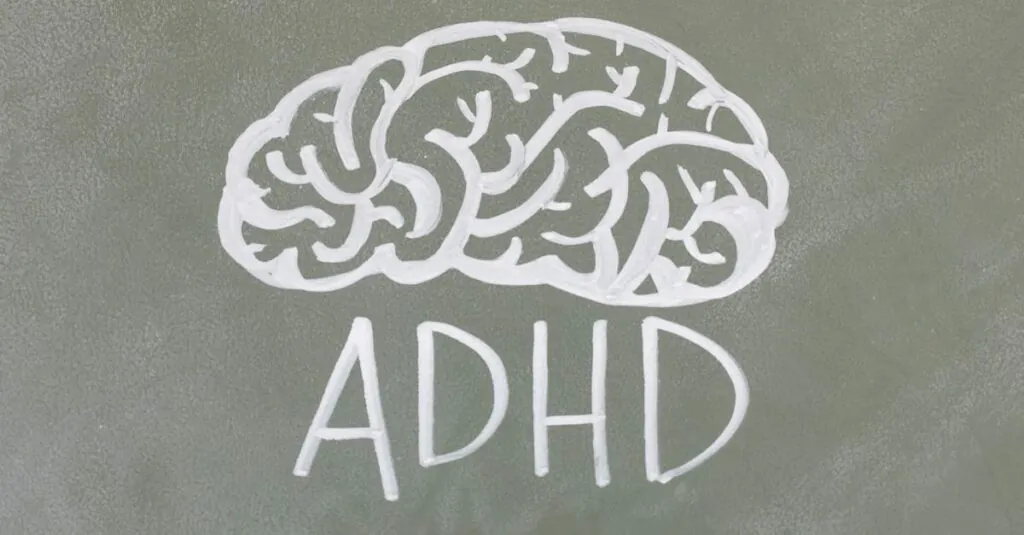Table of Contents
ToggleDialectical Behavior Therapy (DBT) isn’t just a mouthful; it’s a lifeline for those navigating the choppy waters of emotions. Imagine a toolkit designed specifically to help you tackle life’s curveballs with grace and a dash of humor. Enter the DBT workbook—a treasure trove of strategies and exercises that turn emotional chaos into clarity.
From learning to balance acceptance with change to mastering mindfulness, this workbook is like having a personal cheerleader that also happens to be a wise sage. It’s packed with practical tips that make emotional regulation feel less like a chore and more like a fun puzzle to solve. So why not dive in? With a little laughter and a lot of insight, the journey to emotional well-being could be just a page away.
Overview of Dialectical Behavior Therapy
Dialectical Behavior Therapy (DBT) serves as a structured approach primarily designed for individuals with intense emotional difficulties. Developed by Marsha Linehan, DBT combines cognitive-behavioral techniques with mindfulness practices. This therapy emphasizes the importance of accepting reality while simultaneously working toward positive change.
DBT includes four core components: mindfulness, distress tolerance, emotion regulation, and interpersonal effectiveness. Mindfulness focuses on enhancing awareness of thoughts and feelings without judgment. Distress tolerance equips individuals with skills to manage crises effectively. Emotion regulation helps in identifying and modifying intense emotional reactions. Interpersonal effectiveness fosters improved communication and relationship-building skills.
Each component of DBT plays a crucial role in personal growth. Mindfulness improves the ability to stay present, leading to clearer decision-making. Individuals learn practical skills for coping with distress, allowing for healthier responses during emotional storms. Understanding emotions better leads to effective strategies in emotional management. Moreover, enhanced interpersonal skills improve relationships, enabling healthier interactions.
Individual and group sessions typically accompany the workbook, providing comprehensive support. Exercises within the workbook encourage practical application of skills learned during therapy. Participants engage in activities that reinforce lessons, ensuring skills become integral to daily life.
Consistent practice of DBT skills leads to lasting improvements in emotional regulation and overall well-being. For many, utilizing a DBT workbook becomes a vital part of the therapeutic process. The workbook’s accessibility and structured format supports users in their journey toward emotional clarity.
Key Components of the Workbook
The Dialectical Behavior Therapy workbook includes targeted components that enhance emotional and psychological well-being. Each part addresses key skills for personal growth and effective emotional management.
Mindfulness Skills
Mindfulness skills focus on enhancing present-moment awareness. These exercises teach individuals to observe thoughts and feelings without judgment, fostering acceptance. Practicing mindfulness helps to reduce anxiety and emotional reactivity. Techniques like breath awareness and guided imagery enable individuals to connect deeply with their experiences. Engaging in these activities regularly promotes a calm state of mind and clearer thinking.
Interpersonal Effectiveness
Interpersonal effectiveness equips individuals to build and maintain healthy relationships. Participants learn to assert their needs while respecting others’ boundaries. Skills include communication strategies such as “DEAR MAN,” which enhances the ability to ask for what one needs effectively. Structuring conversations to include one’s feelings and opinions increases confidence in interpersonal situations. Developing these skills leads to more satisfying and resilient connections with others.
Emotion Regulation
Emotion regulation teaches techniques for managing emotional responses. Individuals learn to identify and understand their emotions, facilitating better control over intense feelings. Skills include recognizing triggers, implementing self-soothing strategies, and creating a balanced emotional landscape. An emphasis on mindfulness within emotion regulation encourages individuals to respond rather than react impulsively. Mastery of these skills promotes greater emotional stability and resilience.
Distress Tolerance
Distress tolerance focuses on accepting and tolerating difficult emotions without resorting to unhelpful behaviors. Techniques like distraction and self-soothing provide immediate relief during crises. Engaging in this skill set helps individuals navigate overwhelming feelings while reinforcing patience and acceptance. Practicing distress tolerance builds a toolbox for managing intense situations effectively. Ultimately, this component fosters greater confidence in facing life’s challenges head-on.
How to Use the Dialectical Behavior Therapy Workbook
Utilizing the DBT workbook effectively enhances emotional management and interpersonal skills. Readers can engage deeply with the material by following structured guidance.
Step-by-Step Guide
Begin with a clear understanding of each DBT component. Each section of the workbook builds upon the last, promoting gradual learning. Practitioners should read the materials thoroughly before attempting exercises. Setting specific goals for each session amplifies engagement. Regular practice of skills encourages consistency. Tracking progress on a daily or weekly basis reinforces accountability. Reflecting on experiences allows for deeper insight into emotional responses.
Practical Exercises and Activities
Exercises within the workbook cater to various emotional challenges. Mindfulness activities help cultivate present-moment awareness. Emotion regulation tasks facilitate the identification of triggers. Engaging in interpersonal effectiveness simulations improves communication skills. Completing distress tolerance exercises builds resilience in facing difficult emotions. Consistency in practicing these activities maximizes their benefits. Incorporating group discussions on these exercises enhances understanding and support.
Benefits of Using the Workbook
Utilizing the DBT workbook offers numerous advantages for individuals seeking to improve emotional management. Enhanced mindfulness skills provide individuals with tools to stay present, reducing feelings of anxiety and overwhelm. Better emotional regulation fosters a deeper understanding of one’s emotional triggers and responses.
Building interpersonal effectiveness through the workbook strengthens communication skills, allowing for healthier relationships. Participants often report increased confidence when navigating social situations, as the workbook offers practical strategies for expressing needs and boundaries.
Engagement in distress tolerance exercises helps individuals accept difficult emotions without resorting to unhealthy coping mechanisms. Encouragement to embrace challenging feelings fosters resilience and promotes a healthier relationship with emotions. The workbook’s structured approach allows for systematic skill development, making learning manageable and intuitive.
Consistent practice of exercises improves skill integration, resulting in noticeable improvements in daily life. Many users find that tracking progress creates motivation and clarity around their emotional growth. Support from group sessions complements workbook activities, providing a communal atmosphere for sharing experiences and reinforcing learning.
Progress can be accelerated when users apply workbook strategies in real-life situations. Observing personal development often leads to increased self-awareness and personal insight. Each exercise strengthens foundational skills, affirming the workbook as a valuable resource for emotional well-being.
Overall, utilizing the DBT workbook cultivates a comprehensive understanding of DBT principles, enabling effective emotional management and personal growth.
Challenges and Considerations
Using a Dialectical Behavior Therapy workbook presents specific challenges that practitioners and individuals might face. Practitioners may encounter variances in clients’ readiness for change. Some individuals struggle with complex emotions while attempting to apply DBT skills in real-life scenarios. Consistent practice can become difficult, especially in times of emotional distress.
Maintaining motivation poses an additional consideration; progress often feels slow without regular reinforcement. Tracking and reflecting on emotional changes requires dedication and honesty. Accountability can sometimes wane in the absence of structured environment, such as group sessions.
Understanding the balance between acceptance and change can confuse some users. While accepting emotions is crucial, the emphasis on change can create internal conflict. Building interpersonal effectiveness often proves challenging due to established communication patterns, which may not translate easily without additional guidance.
Time commitment can also affect progress; integrating workbook exercises into daily routines requires planning. Unexpected life events can disrupt consistency in practicing skills, leading to feelings of frustration. Reflective exercises demand introspection, which may trigger uncomfortable feelings that some individuals prefer to avoid.
Skills development requires repeated effort; improvement in emotional regulation and distress tolerance may not yield immediate results. Practitioners should guide clients in setting realistic expectations to minimize disappointment. Commitment to the DBT process is essential for growth and resilience.
Being aware of these challenges enables individuals and practitioners to approach the DBT workbook with realistic expectations. Acknowledging difficulties can foster a supportive learning environment, helping individuals persevere through the complexities of emotional management.
The DBT workbook serves as a powerful tool for those seeking to enhance their emotional well-being. By integrating mindfulness and practical exercises, it empowers individuals to navigate life’s challenges with confidence. The structured approach ensures that users can develop essential skills at their own pace while fostering a deeper understanding of their emotions.
Embracing the journey of personal growth through the DBT workbook not only promotes emotional regulation but also enhances relationships and resilience. With consistent practice and a supportive environment, individuals can transform their emotional experiences into opportunities for clarity and growth. Exploring the workbook is a step toward a healthier relationship with oneself and others.







